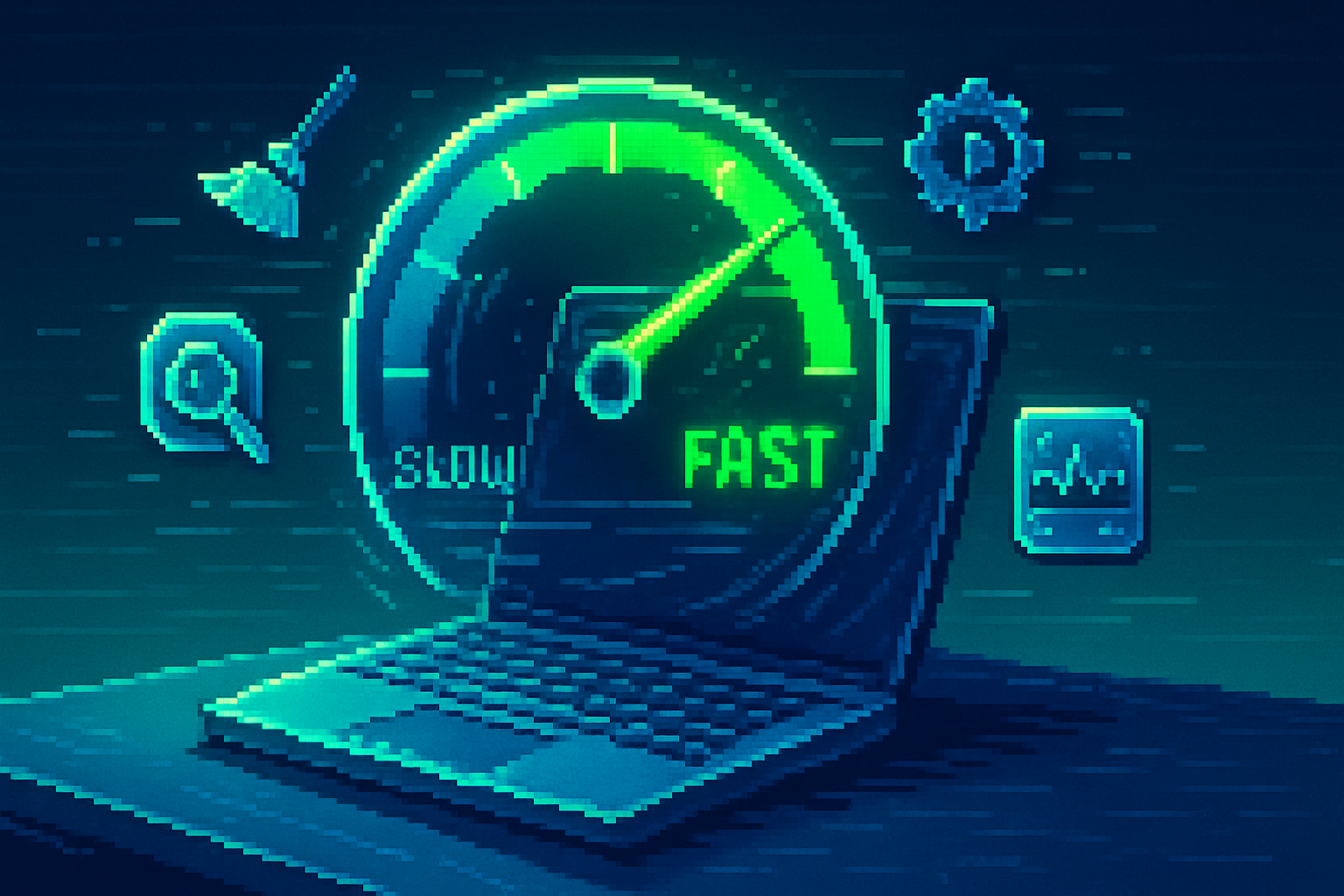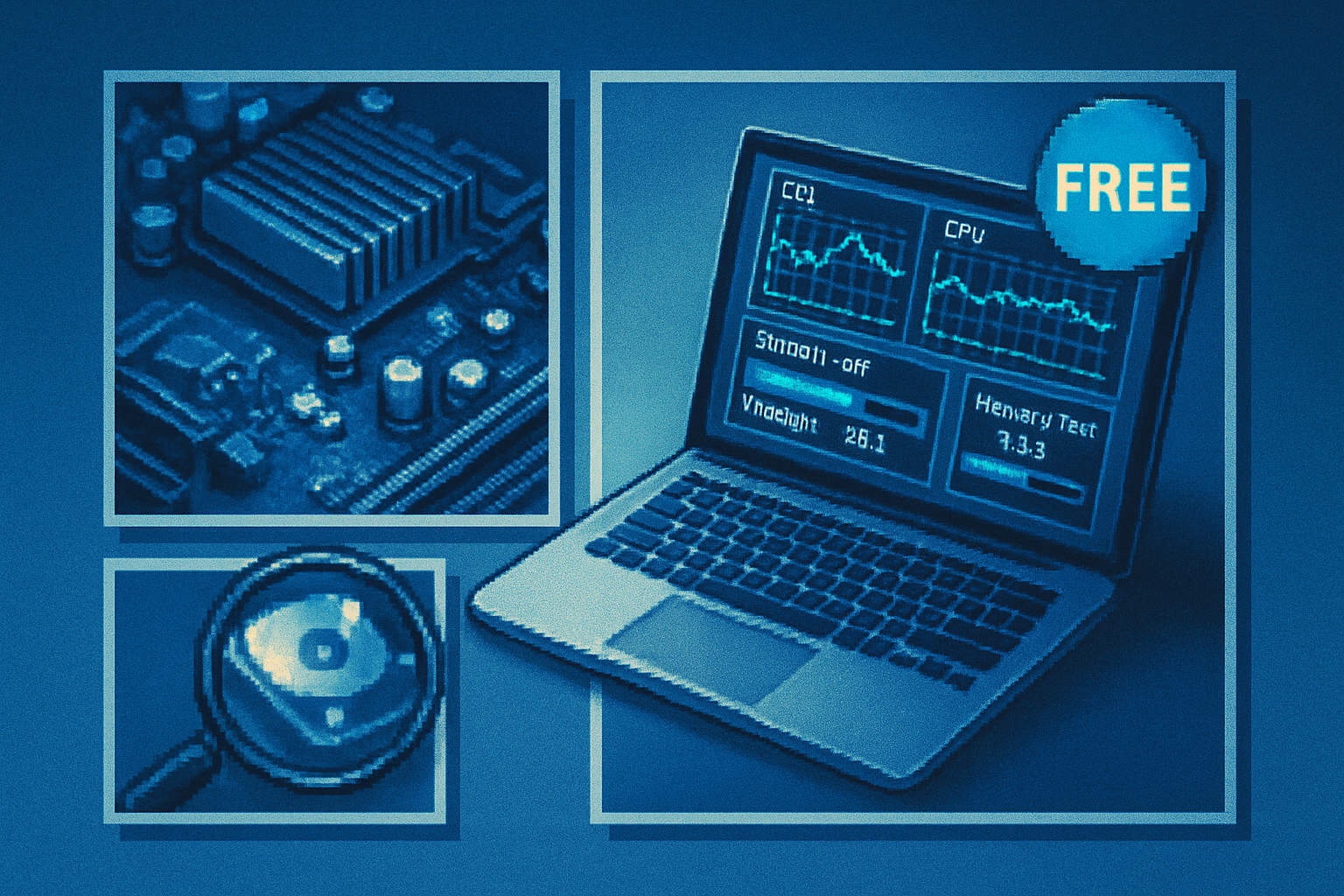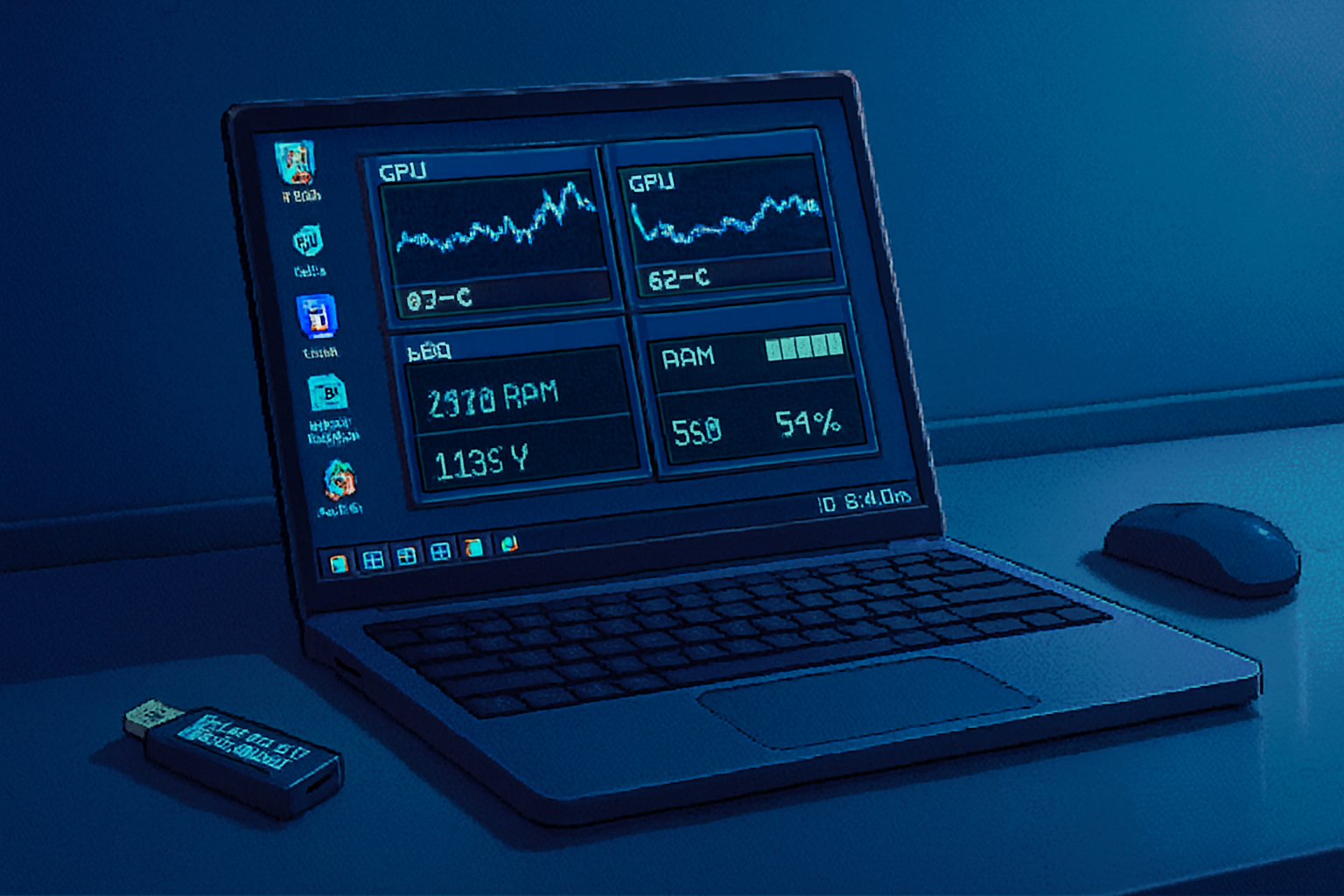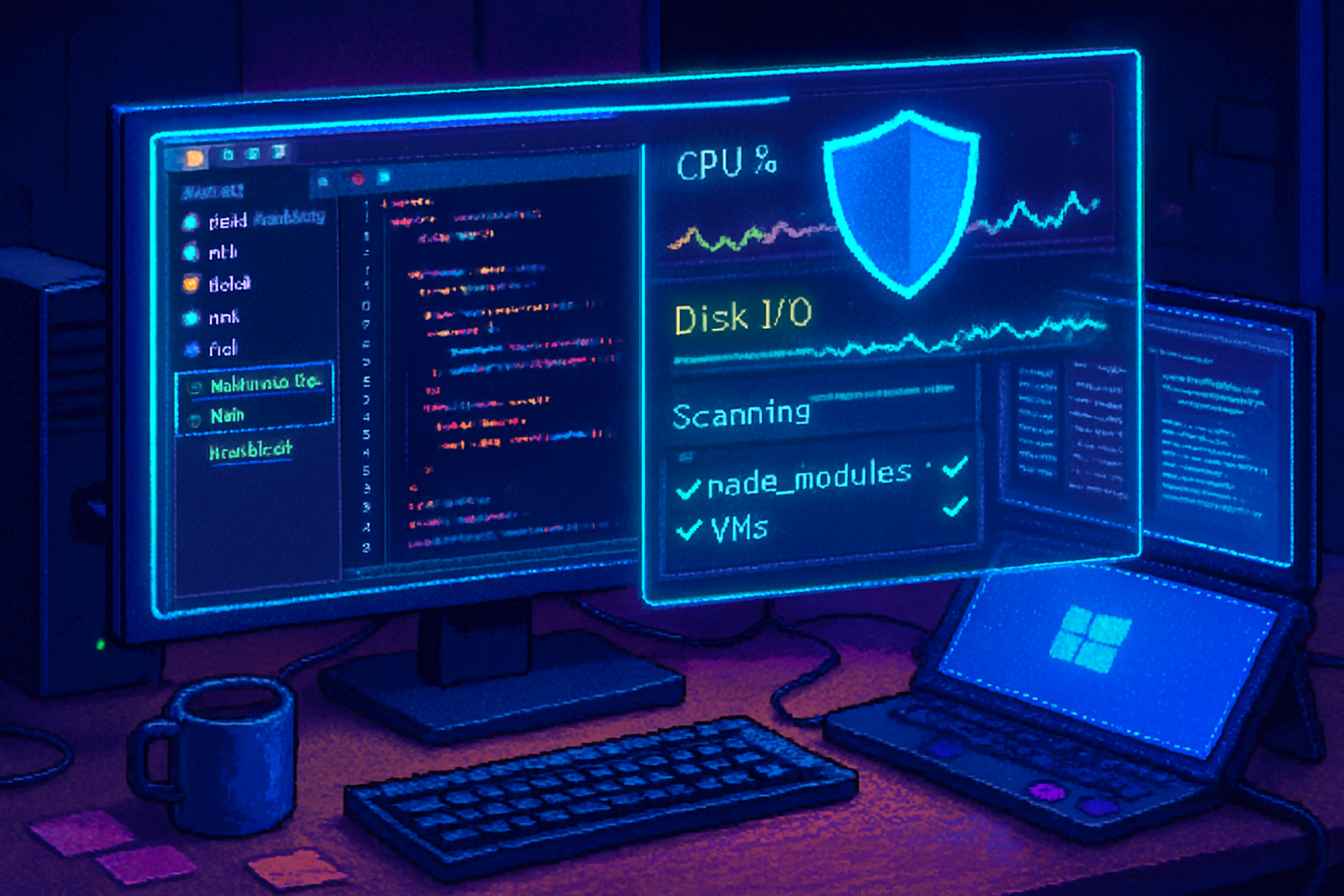· guides · 5 min read
5 Best Free Software Tools to Speed Up Your Windows PC
A hands-on review of five trusted free utilities that help clean disk clutter, manage startup programs, find space-hogs, check drive health and remove junk - plus how to use them safely and an optimal maintenance routine.

Windows PCs inevitably slow down over time. Files accumulate, background apps multiply, and drives get fragmented or filled. While occasional hardware upgrades help, free software tools can often restore snappy performance without spending a cent.
Below are five reliable, free utilities that address the most common performance culprits: junk files, unnecessary startups, disk bloat, and drive health. For each tool you’ll find what it does, key features, links to the official download, quick usage tips, and pros/cons.
1) CCleaner (Piriform) - General cleanup and privacy
What it does
- Removes temporary files, browser caches, and other junk that consumes disk space.
- Offers a simple startup manager and an optional registry cleaner (use with caution).
Key features
- One-click cleaner for Windows and many popular apps
- Startup program manager
- Duplicate file finder (in some builds)
Free download
- Official: CCleaner Free download
How to use
- Install CCleaner and run the Cleaner to analyze junk files.
- Review the analysis results and uncheck anything you want to keep (e.g., saved passwords). Then run the cleaner.
- Use Tools → Startup to disable unneeded programs that slow boot times.
Pros
- Easy for beginners; good for a quick reclaim of disk space.
- Built-in startup manager simplifies boot optimization.
Cons / Safety notes
- The registry cleaner can cause problems if used recklessly; back up the registry before running it.
- Installer may offer bundled software - read prompts and decline extras.
Notes: For a clear explanation why registry cleaners are generally unnecessary for most users, see this guide from How-To Geek: Should You Use a Registry Cleaner?
2) BleachBit - Open-source disk and privacy cleaner
What it does
- Cleans app and system temporary files, cache, logs, and other unneeded data. Works well for privacy-focused cleanup.
Key features
- Open-source and lightweight
- Over 80 application cleaners (Firefox, Chrome, Adobe, system caches)
- Secure file shredding option
Free download
- Official: BleachBit download
How to use
- Download and run BleachBit.
- Select applications or system areas to analyze.
- Use Preview to see what will be removed, then Clean.
Pros
- Transparent, open-source, minimal telemetry.
- Good preview feature to avoid accidental removals.
Cons
- Advanced options (shredding, vacuuming) require care.
Best for
- Users who prefer open-source tools and want a privacy-focused cleaner without commercial upsell.
3) Autoruns (Microsoft Sysinternals) - The power tool for startup management
What it does
- Shows everything that runs on startup (services, scheduled tasks, Explorer shell extensions, drivers, etc.) so you can disable unnecessary items.
Key features
- Extremely detailed - shows items not visible in Task Manager
- Made by Microsoft Sysinternals, trusted by IT pros
- Portable (no installation required)
Free download
How to use
- Run Autoruns as Administrator.
- Review entries under the Logon, Scheduled Tasks, Services, and Explorer tabs.
- Uncheck items you recognize as nonessential; right-click → Search Online for unknown entries.
Pros
- Unmatched visibility into startup behavior.
- Portable and lightweight.
Cons / Safety notes
- Powerful - disabling the wrong item (drivers, security software) can cause problems. Only disable items after confirming what they do.
Best for
- Advanced users and technicians who want fine-grained control over startup programs.
4) WinDirStat - Find what’s filling your disk
What it does
- Visual disk usage analyzer that shows which folders and files are consuming the most space.
Key features
- Treemap visualization for immediate identification of large files
- Directory list and extension list for sorting
- Helps locate forgotten ISO files, old VM images, large caches, etc.
Free download
- Official: WinDirStat download
How to use
- Run WinDirStat and select the drive or folder to scan.
- Look for large blocks in the treemap or the top entries in the file list.
- Right-click files/folders to open their containing folder or delete them (careful when deleting).
Pros
- Fast visual insight into disk usage; great for reclaiming space.
Cons
- Deleting system or program files can break apps; verify files before removing.
Best for
- Finding big, forgotten files (old installers, backups, virtual disks) that free a lot of space quickly.
5) CrystalDiskInfo - Monitor drive health and temperatures
What it does
- Reads S.M.A.R.T. data from HDDs/SSDs to warn about impending drive failures and monitor temperatures.
Key features
- S.M.A.R.T. attributes (reallocated sectors, read error rate, etc.)
- Temperature monitoring
- Alerts for failing drives
Free download
- Official: CrystalDiskInfo download
How to use
- Install and run CrystalDiskInfo.
- Review the health status and S.M.A.R.T. attributes for each drive.
- If health is “Caution” or “Bad,” back up your data and consider replacing the drive.
Pros
- Can catch hardware causes of slowness (failing HDD or thermal throttling on SSD).
Cons
- Only diagnostic - it won’t fix a failing drive; you’ll need to replace it.
Best for
- Preventative maintenance and diagnosing drive-related performance problems.
Putting the five tools together: A practical maintenance routine
- Weekly - Run BleachBit or CCleaner to remove temporary files and browser caches.
- Monthly - Use WinDirStat to spot and remove large leftover files.
- After installs - Run Autoruns to check for unwanted or heavy startup entries.
- Ongoing - Use CrystalDiskInfo to monitor drive health - set alerts if available.
Combine these tools with Windows built-ins like Disk Cleanup and Storage Sense for automated housekeeping.
Safety tips and final recommendations
- Always download from official sites (links above) to avoid bundled adware.
- Make a system restore point or backup before making major changes (uninstalling programs, editing startup entries, or cleaning the registry).
- Avoid “one-click” optimization promises that aggressively change system settings; prefer tools that show what they will remove and let you confirm.
- If a drive shows failing S.M.A.R.T. attributes, back up immediately and replace the drive - that’s often the root cause of unexplained slowness.
Further reading
- Why you probably don’t need a registry cleaner: How-To Geek guide
These five free tools - CCleaner, BleachBit, Autoruns, WinDirStat, and CrystalDiskInfo - cover the common causes of a slow Windows PC: junk files, unwanted startup items, disk bloat, and failing storage. Used carefully and combined with backups and sensible habits, they can keep your PC running much closer to its original speed without spending money.


